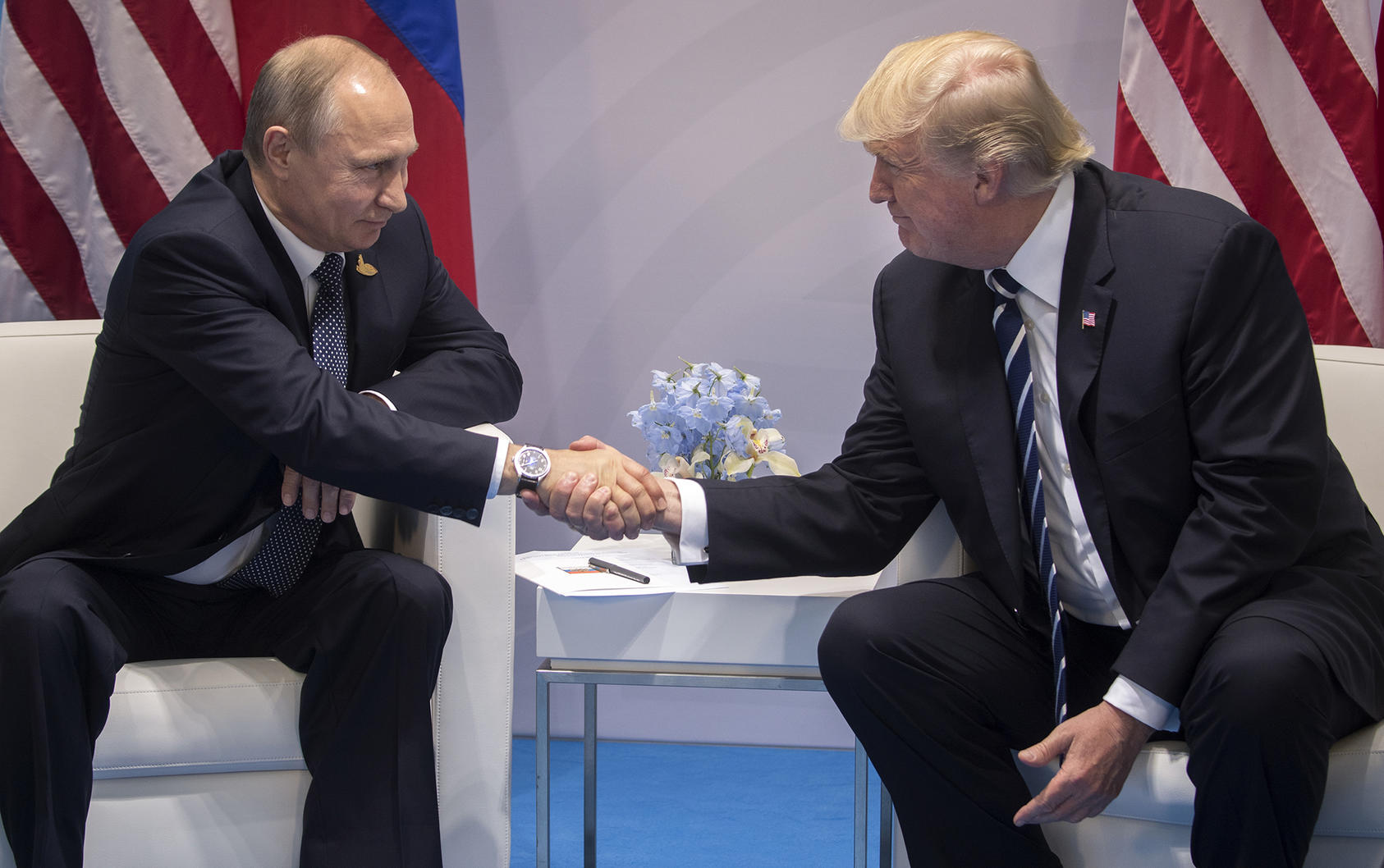Can the Trump-Putin Summit Improve U.S.-Russian Relations?
USIP’s Bill Taylor on the importance of getting Russia out of Ukraine and potential for constructive engagement on arms control
Following a meeting between U.S. National Security Advisor John Bolton and President Vladimir Putin this week, the White House announced that President Trump will sit down with his Russian counterpart for their first formal summit on July 16 in Helsinki, Finland. While both presidents Trump and Putin have repeatedly emphasized the need for improved ties, there are a host of contentious issues—such as the invasion of Ukraine and subsequent U.S. sanctions, Russia’s interference in U.S. and European elections, and the Syrian civil war—that could derail the effort to improve the bilateral relationship. USIP’s Bill Taylor, a former ambassador to Ukraine, discusses what issues will be on the table when the two leaders meet and the potential ramifications of the summit.

What major issues do you expect to be on the table when U.S. President Trump and Russian leader Vladimir Putin meet in mid-July? Will be there be any glaring issues they avoid?
First of all, summits are more likely to produce good results when they are well prepared. Mr. Putin is not our friend—he has invaded his neighbors and meddled in elections in Europe and the United States—so we should not expect favors, just the opposite. Preparation is important. Second, if Mr. Putin wants to rejoin the community of civilized nations and abide by the norms, standards and agreements that have kept the peace among major powers in Europe for nearly 70 years, then he should agree to withdraw from Ukraine. This should be a clear decision—restore sovereignty to Ukraine in its internationally recognized borders and the United States will remove the economic sanctions imposed on Russia in response to its invasion of Crimea and Donbas. Beyond that, Mr. Putin should commit that Russia will never again interfere in the elections and other democratic processes of other countries.
Both leaders have frequently called for improved U.S.-Russian relations. How can Washington and Moscow improve the bilateral relationship? What pitfalls could lead to a worsening of relations following the summit?
There could be clear benefits from improved communication between the U.S. and Russia: both sides should want to avoid the tensions and expense of an arms race, whether involving nuclear, cyber or space weapons. Both sides should also want to eliminate the proliferation of these weapons. Both sides want to avoid accidents or miscalculations that could lead to military confrontations. A range of issues should be discussed with the Russians, but the aggression against Ukraine and the consequent sanctions make these negotiations nearly impossible for now. The summit could agree that the Ukraine issue would be discussed in the United Nations Security Council where a solution involving a U.N. peacekeeping force and an interim international administration for Donbas could be agreed. Discussions of the other important issues could then begin.
Coming on the heels of the NATO summit on July 11-12, how will European allies view the Trump-Putin meeting?
The strength of the NATO alliance is its solidarity, commitment to common values, and pooling of resources. Since the Russian invasion of Ukraine in 2014, NATO has refocused on its earlier mission and has taken consistent and progressively stronger steps to strengthen deterrence against further Russian aggression, especially against NATO member states—particularly East Europeans and Baltic states. NATO allies will want to be reassured that this solidarity and unity of purpose vis-à-vis Russia is reinforced by all NATO heads of state meeting with Mr. Putin.



